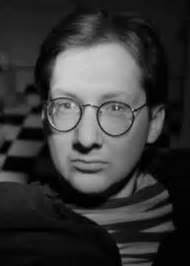A Quote by Ernestine Rose
Whatever good you would do out of fear of punishment, or hope of reward hereafter, the Atheist would do simply because it is good; and being so, he would receive the far surer and more certain reward, springing from well-doing, which would constitute his pleasure, and promote his happiness.
Related Quotes
Whatever the cause, I could not meet his sunshine with cloud. If this were my last moment with him, I would not waste it in forced, unnatural distance. I loved him well - too well not to smite out of my path even Jealousy herself, when she would have obstructed a kind farewell. A cordial word from his lips, or a gentle look from his eyes, would do me good, for all the span of life that remained to me; it would be comfort in the last strait of loneliness; I would take it - I would taste the elixir, and pride should not spill the cup.
They say that dogs may dream, and when Topsy was old, his feet would move in his sleep. With his eyes closed he would often make a noise that sounded quite human, as if greeting someone in his dreams. At first it seemed that he believed Sara would return, but as the years went by I understood that his loyalty asked for no reward, and that love comes in unexpected forms. His wish was small, as hers had been -- merely to be beside her. As for me, I already knew I would never get what I wanted.
We turned onto the last landing. Going out with this guy, I thought, would involve a lot of silly laughter, some wit--the buzz of his whispered wisecracks in my ear. But there would be as well his willingness to reveal, or more his inability to conceal, that he had been silently rehearsing my name as he climbed the stairs behind me. There would be his willingness to bestow upon me the power to reassure him. He would trust me with his happiness.
One of the possible reasons why we might be good is that we're frightened, frightened of God. We want the reward in Heaven, we don't want to go to Hell. That would be an ignoble, ignominious reason for being good, and I think that if anybody was good to you just because they hoped for a heavenly reward, you wouldn't respect them, you'd probably give them a wide berth.
When a man sought knowledge, it would not be long before it could be seen in his humbleness, his sight, upon his tongue and his hands, in his prayer, in his speech and in his disinterest (zuhd) in worldly allurements. And a man would acquire a portion of knowledge and put it into practice, and it would be better for him than the world and all it contains - if he owned it he would give it in exchange for the hereafter.
The ibtilaa' (testing) of the believer is like medicine for him. It cures him from illness. Had the illness remained it would destroy him or diminish his reward and level (in the hereafter). The tests and the trials extract these illnesses from him and prepare him for the perfect reward and the highest of degrees (in the life to come).
There are certain things that we take for granted that simply would not have existed without the great migration. Motown, for example, would not have existed - it simply would not, because Berry Gordy, the founder of it, his parents had migrated from Georgia to Detroit where he founded Motown, and where did he get his talent?
Scientists used to do an experiment whereby a dog's repeated reward for performing a task was unaccountably replaced by punishment. The dog, knowing it would be penalized for doing well or doing badly, would become melancholic and inactive. This and other unforeseeable results were funded by taxing up to sixty percent of people's earnings. People became strangely melancholic and inactive
I fancy you give me credit for being a more systematic sort of cove than I really am in the matter of limits of significance. What would actually happen would be that I should make out Pt (normal) and say to myself that would be about 50:1; pretty good but as it may not be normal we'd best not be too certain, or 100:1; even allowing that it may not be normal it seems good enough and whether one would be content with that or would require further work would depend on the importance of the conclusion and the difficulty of obtaining suitable experience.
I discovered several never-failing signs by which one might know when a man wished to take another wife. He would suddenly 'awaken to a sense of his duties'; he would have serious misgiving as to whether the Lord would pardon his neglect in not living up to his privileges; he would become very religious, and would attend to his meetings ... which seemed just then to be very numerous, and in various other ways he would show his anxiety to live up to his religion.
I should like to believe my people's religion, which was just what I could wish, but alas, it is impossible. I have really no religion, for my God, being a spirit shown merely by reason to exist, his properties utterly unknown, is no help to my life. I have nor the parson's comfortable doctrine that every good action has its reward, and every sin is forgiven. My whole religion is this: do every duty, and expect no reward for it, either here or hereafter.




































